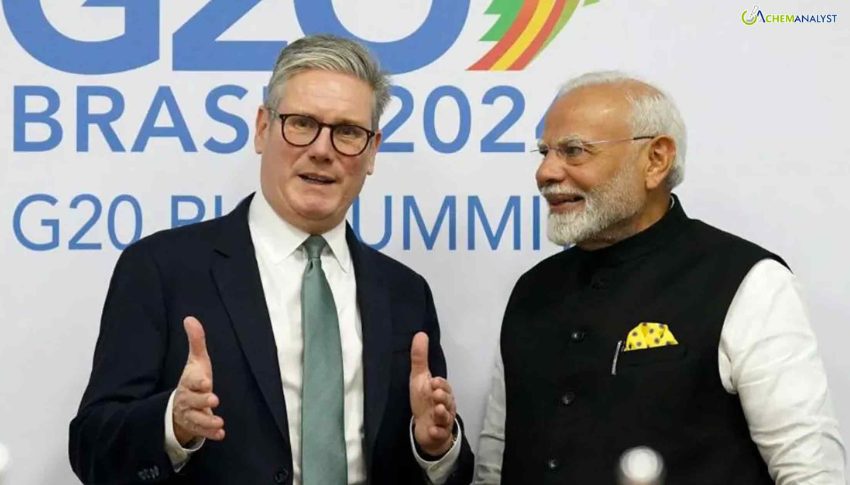Welcome To ChemAnalyst

Landmark agreement set to boost UK GDP by £4.8 billion annually and create over 2,200 British jobs, while strengthening strategic cooperation.
In a significant move set to redefine bilateral economic ties, Prime Minister Keir Starmer and Indian Prime Minister Narendra Modi officially signed the landmark UK-India Free Trade Agreement (FTA) in London on July 23. This historic deal is projected to inject nearly £6 billion in new investment and export wins into the British economy, creating over 2,200 jobs across various high-growth sectors. The agreement also solidifies a renewed Comprehensive and Strategic Partnership, deepening cooperation on critical areas including defence, education, climate, technology, and migration.
The long-anticipated trade deal, a culmination of nearly three years of negotiations, is poised to deliver a substantial uplift to the UK economy, with new analysis indicating a £4.8 billion annual increase to UK GDP.
A cornerstone of the agreement is the significant reduction in tariffs. India's average tariff on UK products will plummet from 15% to 3%, making British exports such as soft drinks, cosmetics, cars, and medical devices more competitive in the vast Indian market. Notably, the beleaguered UK whisky industry stands to gain immensely, with tariffs slashed immediately from 150% to 75%, and further reduced to 40% over the next decade. Conversely, nearly 99% of Indian goods will gain duty-free access to the UK, boosting key Indian sectors like textiles, footwear, gems and jewellery, and auto components.
The immediate impact of the deal is already evident, with nearly £6 billion in new investment and export deals confirmed. This encompasses major deals benefiting British firms such as Airbus and Rolls-Royce, helping to secure hundreds of jobs at their UK facilities through new aircraft orders from Indian airlines. At the same time, Indian companies are strengthening their presence in the UK. Zerowatt Energy, for example, is setting up its global headquarters in Leicester with a £10 million investment, creating 50 new positions. Other key investments include Carbon Clean’s £7.6 million Global Innovation Centre in Mumbai, which will support the creation of 250 jobs in the UK; DCube AI’s £5 million commitment to the UK, adding 50 roles; and Aurionpro’s plan to invest over £20 million in establishing its UK headquarters, expected to generate more than 150 high-skilled jobs.
Beyond trade, the Comprehensive and Strategic Partnership signed by the two Prime Ministers underscores a commitment to closer collaboration on critical global challenges. This involves strengthened intelligence sharing and joint operational efforts to tackle corruption, serious fraud, organized crime, and irregular migration, along with a commitment to finalize a landmark framework for sharing criminal records.
The deal is a testament to patient diplomacy, as highlighted by expert analysis. Unlike approaches that rely on arbitrary deadlines or coercive tactics, the India-UK FTA emerged from a willingness of both nations to engage in robust negotiation, prioritizing mutual respect and long-term strategic interests.
We use cookies to deliver the best possible experience on our website. To learn more, visit our Privacy Policy. By continuing to use this site or by closing this box, you consent to our use of cookies. More info.
